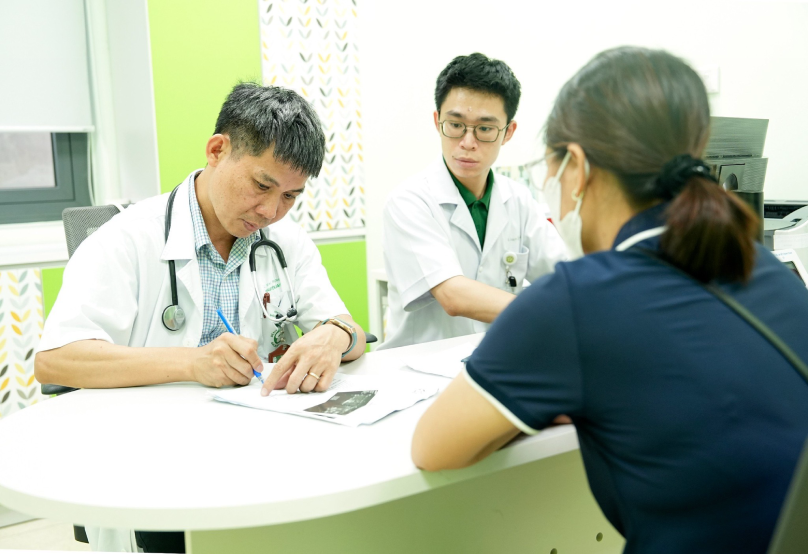
During a routine health check, N.N.H (32, Hanoi) discovered a total cholesterol of 5.9 mmol/L and LDL-Cholesterol of 3.8 mmol/L. Though he did not smoke and did not have diabetes, and had a normal BMI, he still requested medication to “prevent stroke and heart attack early.” The doctor advised lifestyle changes instead of medicine, but N.N.H insisted on a prescription.
L.L.T (37, ThanhTri, Hanoi) found out she had prediabetes, with a fasting blood glucose of 6.9 mmol/L, during a company health check. Worried, she self-medicated with hypoglycemic drugs, leading to severe hypoglycemia and hospitalization.
Dr Duong Minh Tuan from the Department of Endocrinology and Diabetes, at Bach Mai Hospital, said cases like L.L.T are common. Many patients, and even some doctors, mistakenly believe that elevated cholesterol or blood sugar requires immediate medication.
In reality, treating dyslipidemia or prediabetes depends not only on test results but also on overall cardiovascular risk. For instance, with the same LDL-Cholesterol of 3.8 mmol/L, someone with a history of heart attack or diabetes may need medication, while a young, healthy person without risk factors is typically advised to adjust their lifestyle first.
Associate Prof Nguyen Trong Hung from National Institute of Nutrition said that many patients request medication right after diagnosis. When advised to change their lifestyle, they often cite being too busy, lacking time to exercise, being unable to diet, or disliking green vegetables.
“Ninety percent of patients choose medication over adjusting their diet and exercise,” Dr Hung noted.
Some patients even complain when doctors don’t prescribe, arguing that “high cholesterol or blood sugar without medication is unreasonable.”
However, lifestyle changes are the first-line treatment for early dyslipidemia and blood sugar issues. According to Dr Hung, a healthy lifestyle can reduce LDL-Cholesterol by 5-15 percent and triglycerides by 20-30 percent without medication, especially effective in early stages.
Doctors recommend patients start with two simple steps: First, begin with 10 minutes of daily physical activity, gradually increasing to 30 minutes per day or 150 minutes per week, spread over at least three days without more than two consecutive rest days.
Second, patients should limit fatty meats, butter, fried foods, sweets, sugary drinks, alcohol, and tobacco. Instead, prioritize green vegetables, oats, beans, fatty fish, and use plant-based oils like olive or canola oil. These changes not only control cholesterol and blood sugar but also improve overall health and reduce cardiovascular risk without relying on medication.
Overusing medication without lifestyle changes can lead to unwanted side effects and reduce motivation for self-care. Therefore, patients should follow doctors’ advice, patiently adjust habits for long-term benefits, and not rely solely on drugs.
Vo Thu